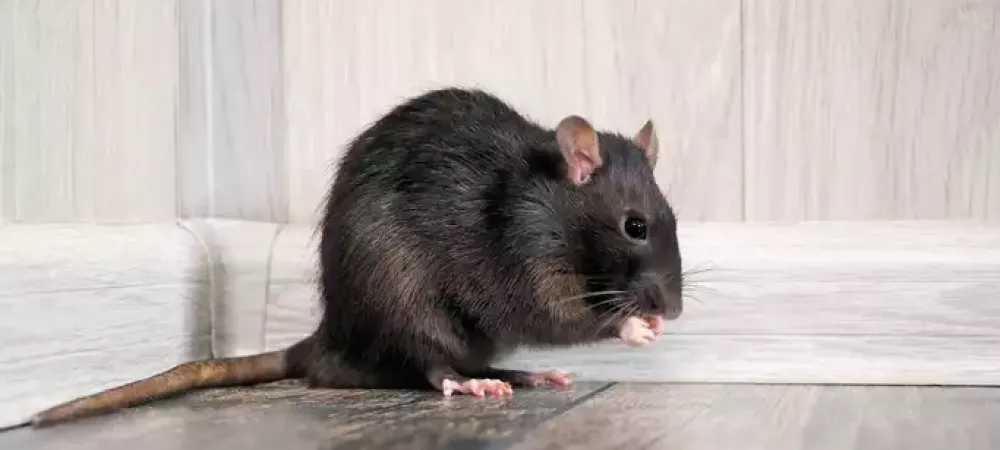The Rising Tide of Rodents: Climate Change and Its Impact on Rodent Populations

A dramatic saga unfolds in America’s bustling metropolises – New York, Chicago, and Boston, to name a few. The adversary? An ever-growing army of rodents thriving under the auspices of climate change. Cities are channeling millions into this high-stakes conflict yet face a looming crisis: a predicted 2°C global temperature hike by century’s end, fueling an ideal breeding ground for these tenacious creatures. Warmer winters, scorching summers, and rats multiplying astonishingly – a perfect storm is brewing.
Enter Bobby Corrigan, the acclaimed rodent maestro from Cornell University. His revelations are startling – a rat’s gestation is a mere 14 days, with newborns joining the reproductive race within a month. Bloomberg’s chilling statistic paints a harrowing picture: a single pregnant rat could birth a staggering lineage of 15,000-18,000 in under a year. This exponential growth demands cutting-edge control tactics, especially in urban jungles already besieged by this scourge. Boston’s Ecologic Entomology stands at the vanguard, armed with knowledge and strategy, ready to confront this burgeoning menace.
The Climate Change Catalyst
Research is unequivocal: climate change is a critical perpetrator in this rodent uprising with its milder winters and warming temperatures. The white-footed mouse, thriving in the eastern U.S. and Canada, exemplifies this trend. Since 1970, Northeastern winters have warmed by over 3°F, bolstering mouse survival rates and triggering population explosions.
This is more than a mere nuisance. These rodents are vectors for Lyme disease, portending a potential public health crisis. As Boston’s winters mellow, rat reproduction accelerates, defying traditional seasonal slowdowns. This “rat explosion” is redefining urban wildlife dynamics, with larger, more aggressive rodent populations compelling cities to appoint “rat czars” and brace for a potential “ratpocalypse.”
The plot thickens with a possible northward rat migration driven by harsher southern climates. This anticipated shift demands preemptive, innovative pest control strategies to anticipate and counteract the impending rodent influx.
Collaborative Crusade: Cities and Pest Management Experts
The battle against rodent infestations has transformed into a collaborative crusade in the ever-evolving urban landscapes, where cities and professional pest management teams join forces to tackle this pervasive challenge. Rodents, the archenemies of urban tranquility, find their haven in the intricate dance of climate dynamics and urban growth. Recognizing the gravity of this issue, cities and businesses are raising the bar in vigilance, with pest management experts proactively intensifying their strategies to disrupt food sources and fortify buildings against these unwelcome intruders.
The city of Boston exemplifies this united front in its war against rodents. The Environmental Sanitation Division, a paragon of proactive urban defense, seamlessly integrates public education, enhanced sanitation measures, and strict enforcement protocols. This multifaceted strategy, born from the synergy of municipal leadership and pest control proficiency, showcases a comprehensive approach to rodent management. It’s a testament to the power of collaboration, where the combined expertise and resources of cities and pest management professionals are mobilized to safeguard our urban spaces from the relentless tide of rodent encroachment.
Ecologic Entomology: A Beacon of Innovation
At Ecologic Entomology, our response to this growing issue is multifaceted. Understanding that conventional methods may not suffice, a more comprehensive approach that combines traditional and modern techniques is used. Core elements of these strategies include:
- Integrated Pest Management (IPM): IPM emphasizes a holistic approach, considering the rodents’ life-history strategies, such as high reproductive rates and adaptive behaviors. It involves understanding rodent behavior, the impacts of infestations, and the importance of infrastructure and regulations.
- Effective Trap Placement and Baiting: Strategic placement of traps and appropriate bait stations tailored to the specific environment and rodent behavior are crucial. This includes placing traps along common rodent routes and using food the rats consume.
- Habitat Modification: Effective rodent control often involves eliminating habitat features important to rats and mice, such as through sanitation programs. Historical examples have shown that intensive sanitation can be more effective than poisoning campaigns alone.
- Species-Specific Strategies: Understanding the unique traits and behaviors of different rodent species, such as house mice, Norway rats, and roof rats, is essential for developing tailored control strategies.
- Electronic Rodent Monitoring (ERM): Electronic rodent monitoring is an increasingly popular method. These systems utilize sensors and digital tools to monitor rodent activity, allowing for real-time tracking and more efficient management. This technology enhances the effectiveness of pest control programs by providing timely data and alerts about rodent activity, enabling quicker and more targeted responses.
These strategies represent a shift towards more sustainable, effective, and informed approaches to urban rodent control, combining traditional methods with modern technology and a deeper understanding of rodent behavior.
Ready to Take Your Pest Control Strategy to the Next Level?
In an era where businesses and commercial properties are grappling with the escalating challenges of rodent infestations, magnified by the realities of climate change, the need for innovation in pest control has never been more critical. Ecologic Entomology, a pioneering force based in Boston, stands at the forefront of this battle, offering a suite of intelligent pest management strategies designed to keep the heartbeat of Greater Boston pulsing strong – uninterrupted, 24/7, all year round.
